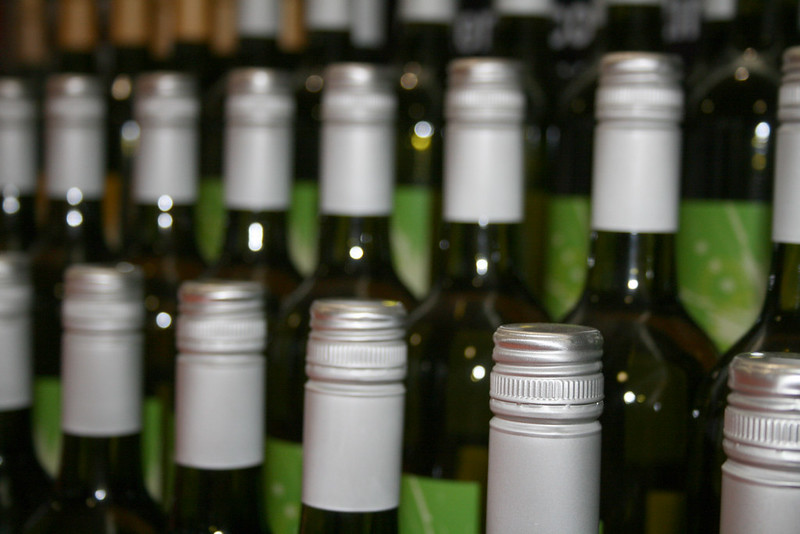Florida-Based E-Commerce Wine Business: 3 Options

E-commerce allows entrepreneurs to build direct-to-consumer (DtC) retail businesses and manage them from anywhere. Whether selling snow skis or water skis (or both), geography is no obstacle for a good retail website and strong brands. When it comes to the heavily regulated alcoholic beverage industry, however, it’s not so simple (see How to Build a Direct-to-Consumer Florida Beverage Company). Here are three options for Florida-based businesses to sell more than just Florida wine to retail customers around the country.
Option 1: White Labels
White labeling (also called custom crush) is the easiest way for a wine retailer to develop proprietary wine labels without getting involved in making, bottling, or shipping the wine. In this arrangement, a white label customer enters a contractual arrangement with a winery. The winery will make the wine, bottle it, and use the white label customer’s name and label designs. The winery holds the required federal and state wine making licenses and pays federal and state excise taxes.
By working with a California-based winery, a white label customer can hold a California off-sale retail license that allows the customer to sell and ship its white labeled wine directly to customers in California and the 14 other states that allow retail DtC wine sales, including Florida (separate licenses might be required for those states).
- Pros
- Does not require expertise or investment in winemaking or bottling
- No requirement to have a physical location
- Cons
- Entirely reliant on the white label winemaker for making, bottling, and shipping wine
- Limited to working with California white label winemakers
- No ability to sell to distributors or other retailers
- Limited to sales in 14 states currently
Option 2: Negociant Winemaking
Negociant winemaking describes a range of activities in which the winemaker uses grapes, juice, or finished wine that is produced by another winemaker. A Florida-based winery can import grapes or juice from anywhere in the world to make wine from start to finish. Alternatively, a Florida-based winery can import wine in bulk from US wineries to be blended, bottled and aged on site. It is even possible for a Florida-based winery to purchase wine “shiners”–bottled wine that is shipped to a second winery without the label attached.
In each of these cases, the Florida-based negociant winery is considered as having completed the wine, which is significant. Because of the US Supreme Court’s decision in Granholm v. Heald, the Florida winery is allowed to sell and ship that product to retail customers in 48 states, as long as it has a Florida retail license and complies with retail regulations in receiving states.
- Pros:
- Allowed to sell to retail customers in almost every state
- Allowed to sell to distributors in Florida
- Greater control over the winemaking and bottling process
- Can work with different suppliers of grapes, juice, bulk wine, or shiners
- Cons:
- Must have a facility in Florida that is licensed as a winery and retailer
- Must account for and pay federal and state excise taxes
Option 3: Alternating Proprietorship
Alternating proprietorship is like timeshare for alcoholic beverage manufacturing. In this arrangement, a host winery agrees to share its winery premises with a tenant winery. A Florida-based tenant winery can enter an alternating proprietorship arrangement with a winery located somewhere outside of Florida. The tenant winery would have its own federal and state license for operation of the host’s winery facilities and equipment. The tenant and host would then work out times and arrangements for the tenant to make and bottle wine in the host’s facilities. The tenant could then either sell its wine to distributors or to retail customers in 48 states (assuming proper state licensing).
If a Florida-based tenant winery also had a licensed winery premises in Florida, it could transfer the wine from the host winery’s facilities to Florida. The Florida winery could then finish and/or bottle the wine before shipping it out to retail customers. A Florida-based winery premises could also engage in the negociant winemaking activities described above.
- Pros:
- Allowed to sell to retail customers in almost every state
- Allowed to sell to distributors in Florida
- Complete control over the winemaking and bottling process
- Can work with different suppliers of grapes, juice, bulk wine, or shiners
- Cons:
- Relationship with the host winery might be difficult to manage
- Required to have own federal and state licenses for host winery’s facilities
- Must account for and pay federal and state excise taxes
Do you have questions about building a Florida-based ecommerce wine business? Contact us to schedule a consultation with a beverage attorney.
Because we’re attorneys: Disclaimer.

